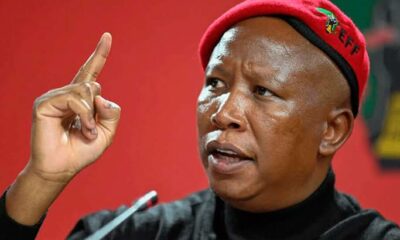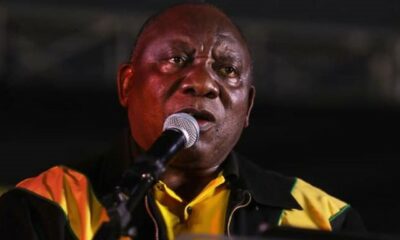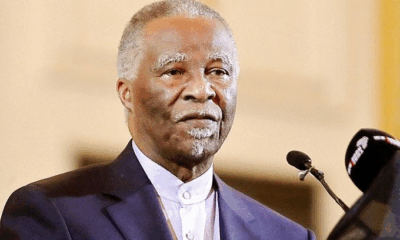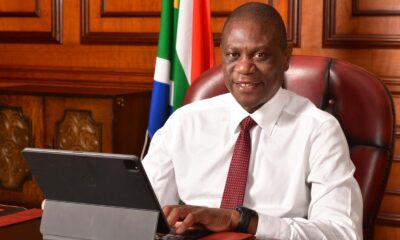News
Kenny Kunene Ordered to Apologise After Court Rules ‘Cockroach’ Comment About Malema is Hate
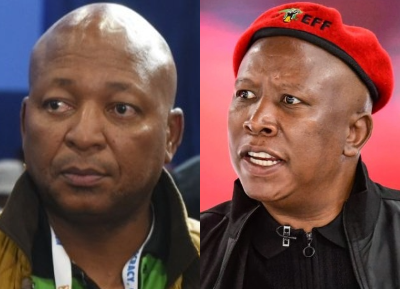
When Politics Crosses the Line: Kunene Ordered to Apologise for Dehumanising Malema
In the often fiery world of South African politics, sharp words are nothing new. But for suspended Patriotic Alliance deputy president Kenny Kunene, one televised interview may have taken things a step too far.
The Gauteng High Court in Johannesburg has now made it official: Calling EFF leader Julius Malema a “cockroach” isn’t just offensive, it’s hate speech.
A TV Rant with Legal Consequences
The controversy started when Kunene, speaking on eNCA in the heat of post-election commentary, repeatedly referred to Malema using terms like “cockroach,” “little frog,” and “criminal.”
Malema didn’t let it slide. He took the matter to the Equality Court, arguing the language was more than political mudslinging, it was dehumanising and dangerous.
The court agreed, and this week, a full bench of the High Court dismissed Kunene’s appeal against that ruling.
Why This Matters: The Power of Language in Politics
Judge Stuart Wilson, who delivered the ruling, didn’t mince words. He said Kunene’s remarks crossed the constitutional line, falling squarely within the definition of hate speech as laid out in the Equality Act.
“Political speech in South Africa must not become an act of mutual dehumanisation,” the judge said.
Referencing historical atrocities, from pogroms to genocide, Judge Wilson warned of the deep dangers tied to language like “cockroach,” which has been used globally to justify violence and erasure of human dignity.
So, What Happens Next?
Kunene has been ordered to apologise to Malema—both in writing and on air, within 30 days. He’s also banned from using the term “cockroach” to refer to Malema ever again.
Interestingly, the court didn’t uphold the Equality Court’s ruling in its entirety. It ruled that the words “little frog” and “criminal,” while harsh and insulting, didn’t meet the threshold for hate speech. Likewise, the case won’t be referred to the NPA, as criminalising expression is meant to be a last resort.
Still, the judgment is clear: Kunene went too far, and this isn’t just about personal attacks, it’s about preserving the boundaries of respectful political discourse.
Public Reactions: Divided, Loud, and Unfiltered
On social media, South Africans had plenty to say.
Some praised the court’s stance:
“About time politicians were held accountable for their mouths. Freedom of speech doesn’t mean freedom from consequences.”
Others saw it as censorship:
“This is ridiculous. Malema has said worse about others. If this is hate speech, then we need to open hundreds of cases.”
Still, there’s a shared sense that South Africa’s political theatre has been getting more vicious, often sacrificing dignity and empathy for attention-grabbing insults.
Beyond the Courtroom: A Test for Political Maturity
This case isn’t just about Kunene and Malema. It’s a test of how far South African democracy has come, and whether its leaders are ready to rise above insult politics.
In a political landscape defined by coalition chaos, township tensions, and racial reckonings, the language politicians use matters more than ever. As Judge Wilson pointed out, Kunene himself plays an important role in the very system his words risk undermining.
If nothing else, this ruling is a reminder that freedom of expression comes with responsibility, especially when you’re speaking to millions.
South Africa’s democracy is strong enough to allow debate, but that debate cannot be built on dehumanisation. And if our leaders forget that, the courts are ready to remind them.
{Source: IOL}
Follow Joburg ETC on Facebook, Twitter , TikTok and Instagram
For more News in Johannesburg, visit joburgetc.com

